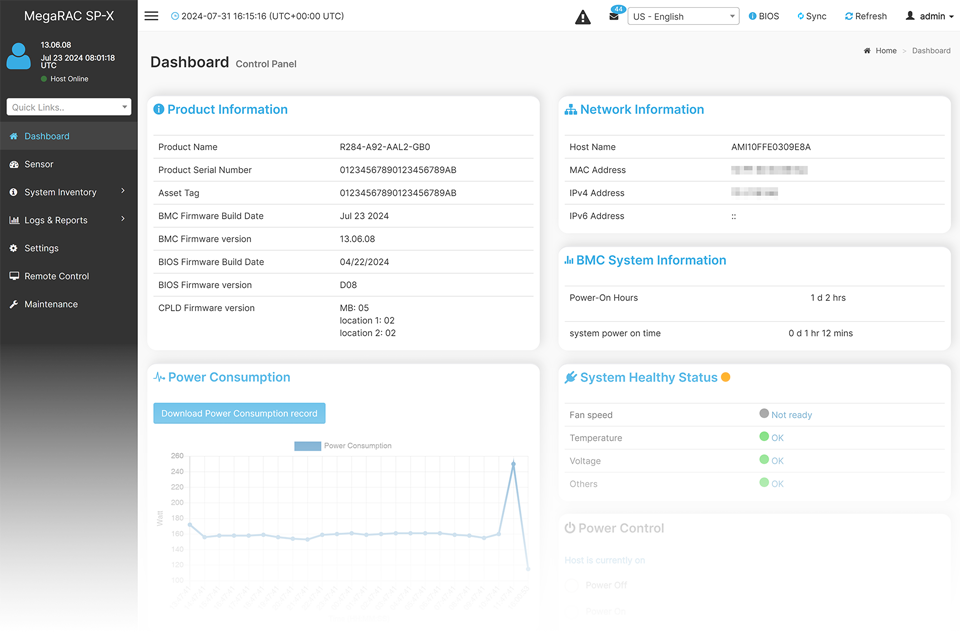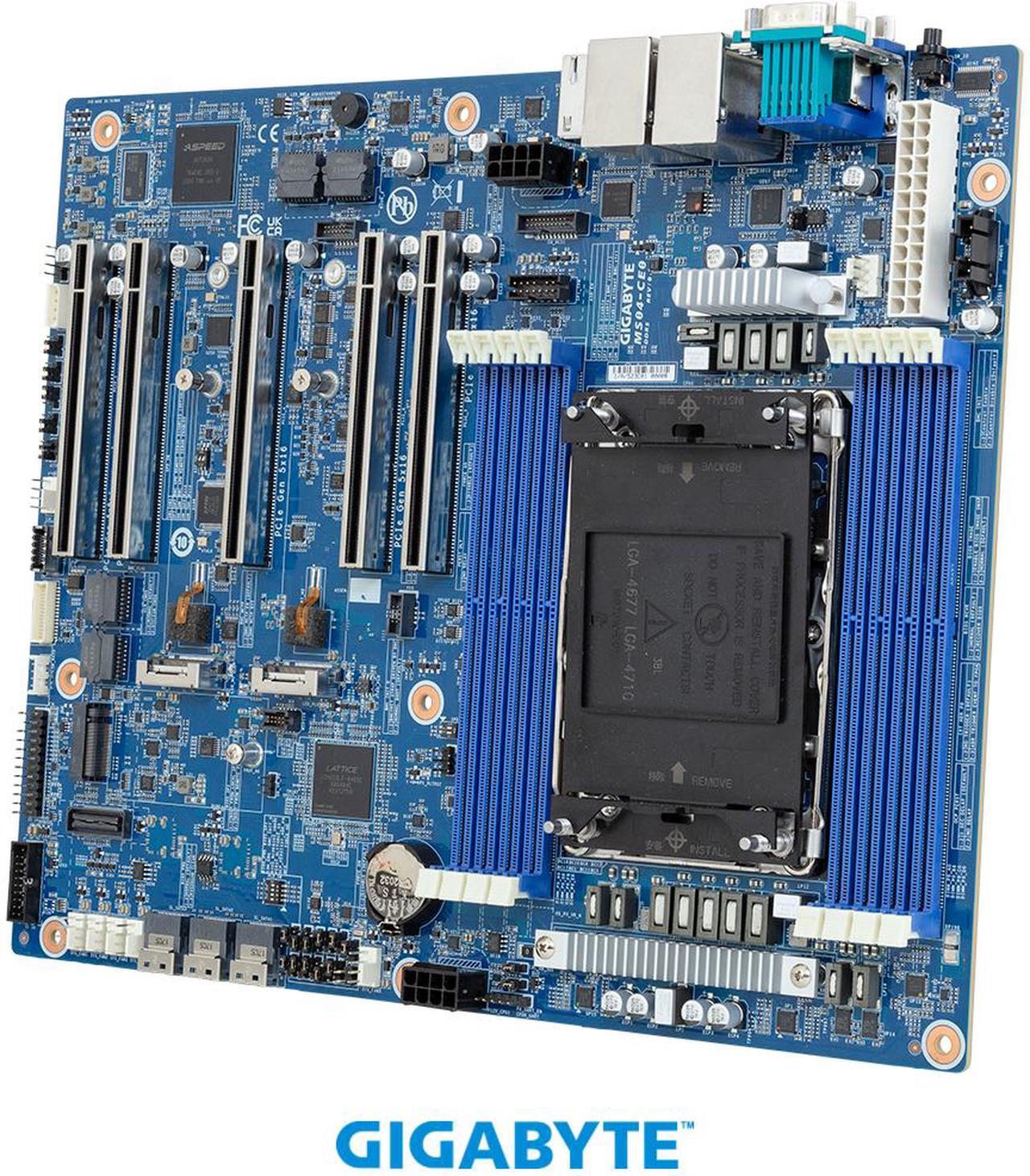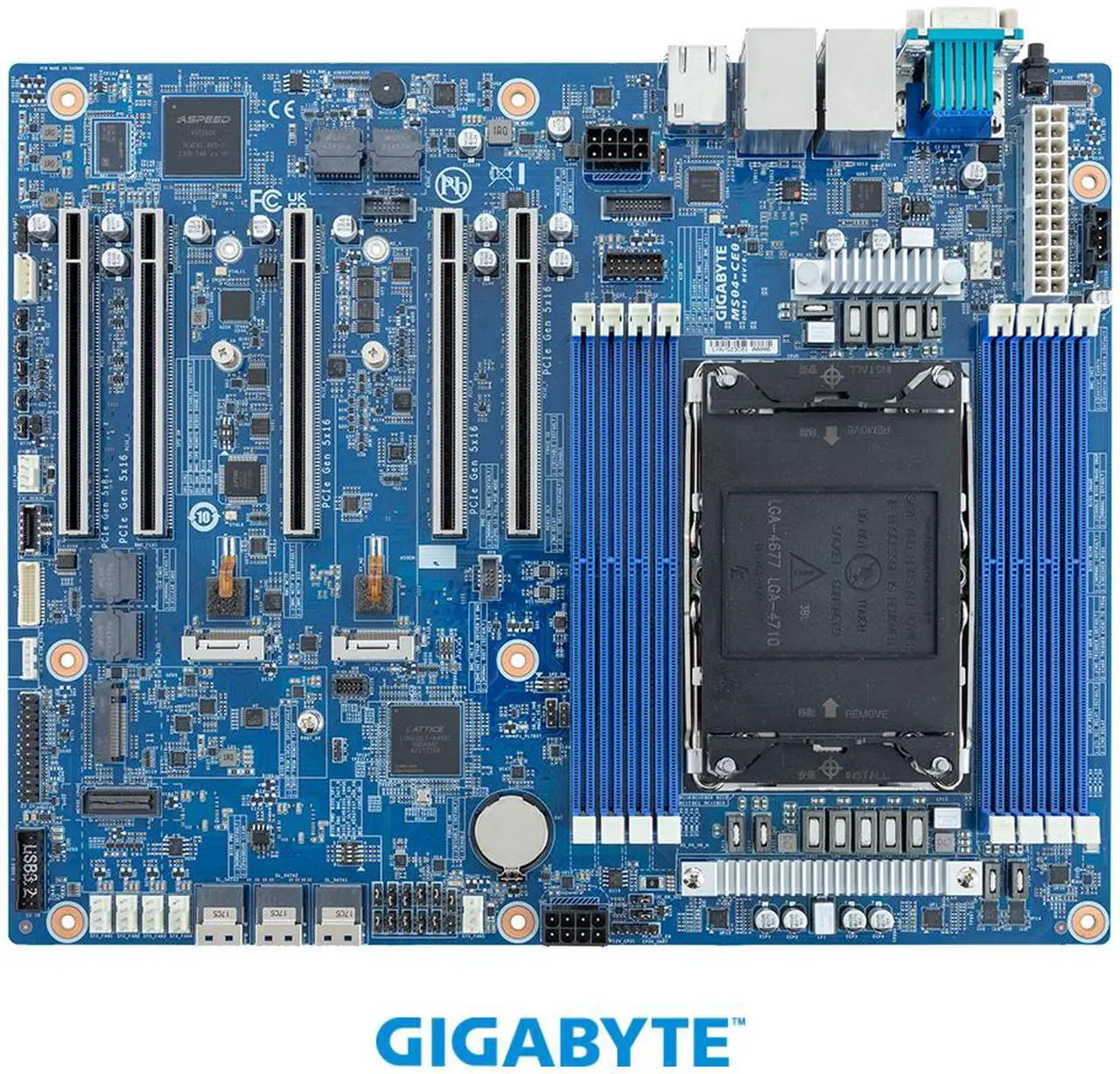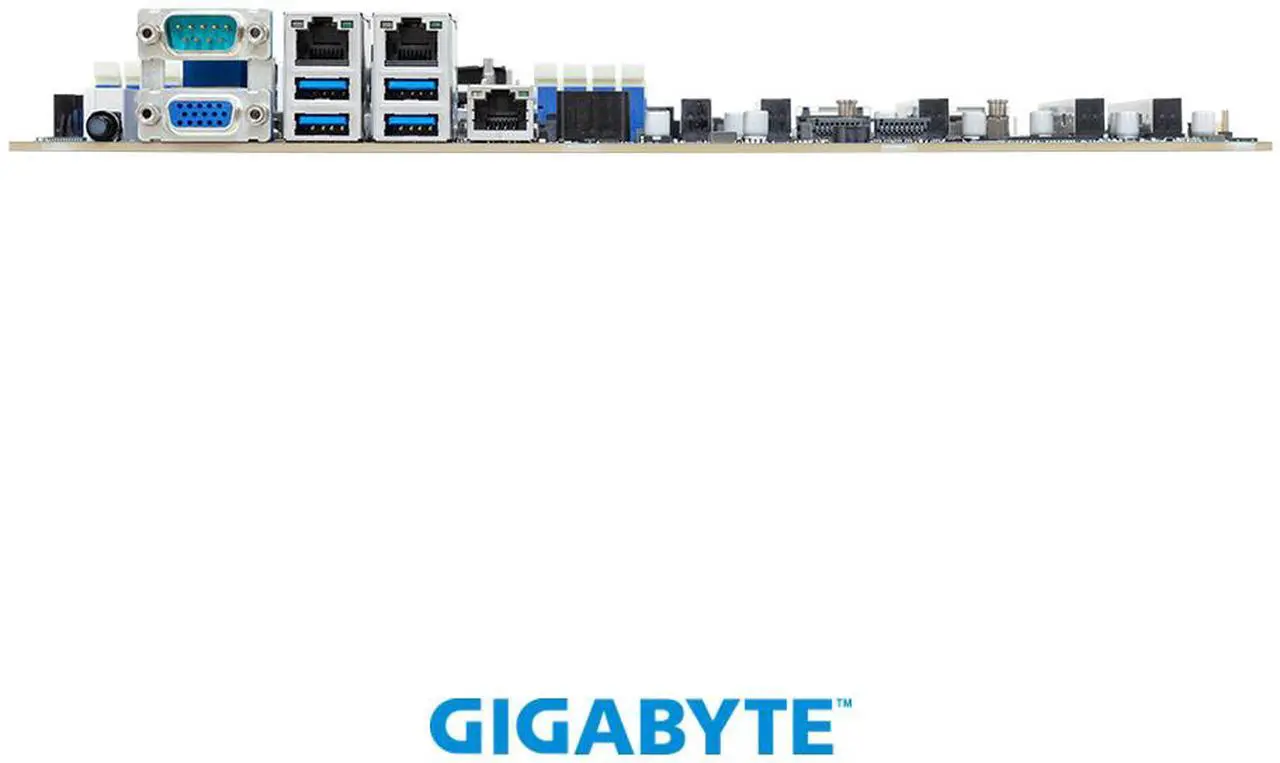
Intel Xeon 6 is a new generation of processors that has tailored its CPU lineup to target all uses cases such as Cloud Computing, AI, Analytics, and Edge & IOT. Whether it's high compute density that is dependent on core count and power efficiency or AI/HPC applications that heavily rely on strong single-core performance, this new platform covers them all with its Performance cores (P-cores) and Efficient-cores (E-cores). Along with flexible I/O options, integrated accelerators, and support for CXL 2.0 devices, Intel Xeon 6 fulfills customer needs across the broadest range of data center workloads, segments, and deployment models.

Acceleratorsbuilt-in*
Incredible performance and efficiency improvements with the easy adoption of on-chip accelerators
8 or 12 Channels
Increased memory frequency and throughput with DDR5 RDIMM support
PCIe 5.0 lanes
Up to 136 lanes for 1S designs, supporting all the latest drives and accelerators
CXL 2.0 support
Flexible support between PCIe and CXL, utilizing DDR5 and CXL memory as one unified region
Intel Xeon 6 Processors with E-cores
Up to 288 E-cores per CPU
Core dense and optimized efficiency for cloud-native and hyperscale workloads
Intel Xeon 6 Processors with P-cores
Up to 128P-cores per CPU
Greater core performance with improved TCO, accelerating AI and compute intensive workloads
MRDIMM support
Unprecedented frequency on the advanced MRDIMM, boosting memory-intensive application to a whole new level

The best in computational performance relies on a system well designed by our engineers to adequately dissipate heat to achieve peak performance.

Our engineers have baked in features to achieve higher efficiency from power supplies and server fans. Along with Titanium and Platinum offerings.

GIGABYTE releases multiple product models and configurations to target exactly what users want without paying for extra features that go unused.

GIGABYTE servers come with GIGABYTE Management Console for server management. Using a web based browser remotely is key to easing management.

Systems are rigorously designed and tested to ensure downtime will not occur. Customers have come to expect stable performance.



For hardware-based authentication, the passwords, encryption keys, and digital certificates are stored in a TPM module to prevent unwanted users from gaining access to your data. GIGABYTE TPM modules come in either a Serial Peripheral Interface or Low Pin Count bus.

If the ROM that stores the BMC and BIOS fails to boot, the system will reboot with the backup BMC and/or BIOS replacing the primary. Once the primary BMC is updated, the ROM of the backup BMC will automatically update the backup through synchronization. For the BIOS, it can be updated based on user's choice of firmware version.
Value-added Management
GIGABYTE offers free-of-charge management applications via a specialized small processor built on the server.

For management and maintenance of a server or a small cluster, users can use the GIGABYTE Management Console, which is pre-installed on each server. Once the servers are running, IT staff can perform real-time health monitoring and management on each server through the browser-based graphical user interface. In addition, the GIGABYTE Management Console also provides:
- Support for standard IPMI specifications that allows users to integrate services into a single platform through an open interface
- Automatic event recording, which can record system behavior 30 seconds before an event occurs, making it easier to determine subsequent actions
- Integrate SAS/SATA/NVMe devices and RAID controller firmware into GIGABYTE Management Console to monitor and control Broadcom MegaRAID adapters.
GIGABYTE Server Management (GSM)
GSM is a software suite that can manage clusters of servers simultaneously over the internet. GSM includes a complete range of system management functions that includes the following utilities:
- GSM Server: A software program that provides real-time, remote control using a graphical user interface through an administrator's computer or through a server in the cluster. The software allows ease of maintenance for large clusters of servers.
- GSM CLI: A command-line interface for monitoring and managing remotely.
- GSM Agent: A software program installed on each GIGABYTE server node that retrieves information from each system and devices through the OS, and this software integrates with GSM Server or GSM CLI.
- GSM Mobile: A mobile app for both Android and iOS that provides admins with real-time system information.
- GSM Plugin: An application program interface that allows users to use VMware vCenter for real-time monitoring and management of server clusters.


* The entire materials provided herein are for reference only. GIGABYTE reserves the right to modify or revise the content at anytime without prior notice.
* Advertised performance is based on maximum theoretical interface values from respective Chipset vendors or organization who defined the interface specification. Actual performance may vary by system configuration.
* All trademarks and logos are the properties of their respective holders.
* Due to standard PC architecture, a certain amount of memory is reserved for system usage and therefore the actual memory size is less than the stated amount.








